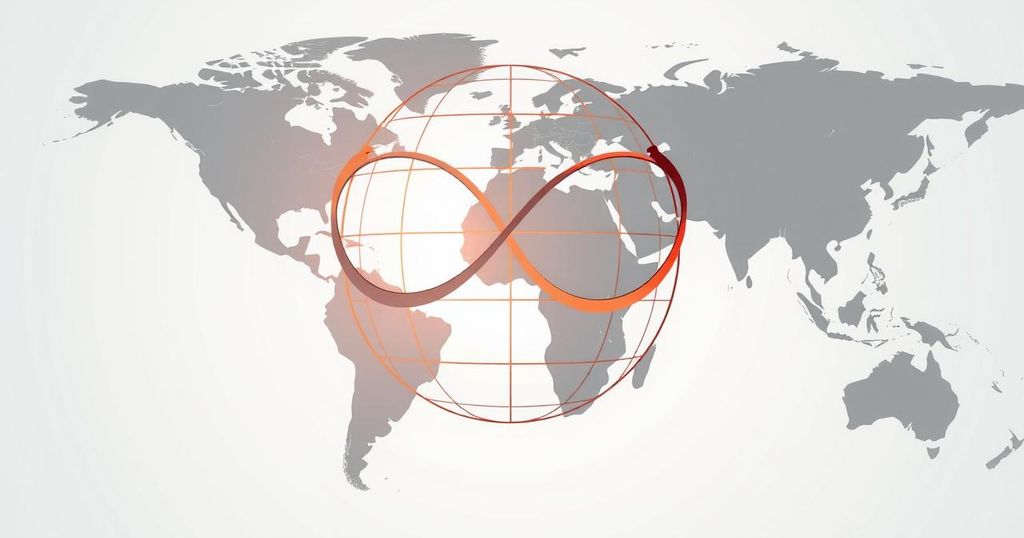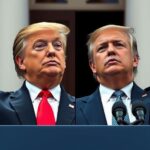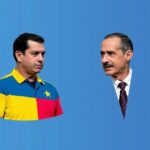Politics
ASIA, DEMOCRACY, EDMUND, EL SALVADOR, EUROPE/ASIA, FOREIGN POLICY, INTER - AMERICAN DIALOGUE, IRAN, LATIN AMERICA, MAD, MADURO, NATIONAL SECURITY, NICOLAS MADURO, NORTH AMERICA, PHILIPPINES, RUSSIA, TAMARA TARACIUK, TRADE RELATIONS, U. S, U. S. AGENCY FOR INTERNATIONAL DEVELOPMENT, USAID, VOICE OF AMERICA
Dante Raeburn
Impact of Trump’s Foreign Aid Cuts on Democratic Movements in Latin America
President Trump’s cuts to USAID are detrimental to pro-democracy groups in Latin America, empowering leaders like Maduro in Venezuela. Experts highlight that these funds are crucial for monitoring elections and supporting civil rights initiatives. The withdrawal of aid could enable authoritarian regimes to strengthen their grip on power, further diminishing prospects for democracy and allowing for increased influence from countries like China and Russia.
President Trump’s decision to eliminate the U.S. Agency for International Development (USAID) is perceived as a significant setback for pro-democracy movements in Latin America. This reduction in support is likely to cripple civil society organizations in nations such as Venezuela, Cuba, and Nicaragua, which heavily rely on USAID funding to operate. Experts argue that such cuts benefit authoritarian regimes, allowing them to consolidate power without the constraints typically posed by civil rights organizations.
Tamara Taraciuk, a civil rights expert, commented, “The suspension of U.S. foreign aid has been a gift to Latin America’s authoritarian rulers.” She highlighted that many civil society groups are often the last line of defense against oppressive governments. Venezuelan leader Nicolás Maduro, along with his regional allies, has long disparaged USAID, labeling it a tool for U.S. hegemony, yet funded initiatives aimed at promoting democracy are relatively minuscule compared to the financial influence of countries like China and Russia.
USAID not only funds humanitarian initiatives but also supports democracy and human rights in regions benefitted over the years. For instance, in the previous year, USAID allocated $211 million specifically for Venezuela, enabling organizations to monitor elections and maintain democratic integrity. However, the scaling back of this funding puts the viability of these organizations at serious risk and undermines the democratic process.
Civil society leaders have indicated that they depend heavily on USAID; for some, these funds comprise up to 75% of their revenue. One leader expressed, “Trump is doing what Maduro has not been able to do — choking civil society.” This shift could lead to an increase in influence from alternative powers like China and Russia in the region, particularly with their investment in soft power initiatives.
Historically, USAID was established during the Cold War to counter Soviet influence globally. Presently, it is seen as a vital instrument of U.S. soft power amidst growing concerns about China’s global ambitions. However, Trump has criticized the agency for wastefulness, citing reduced funding despite its minimal impact on the overall federal budget. As the agency faces significant cuts and staffing reductions, its future role remains uncertain.
The ramifications of budget reductions could be profound in countries that rely on U.S. support for their civil initiatives. Civil society leaders express hope that waivers will allow access to some funding from USAID despite the suspension of foreign aid. Yet, experts warn that the recent halt could lead to dire consequences for organizations striving to uphold democracy in their respective nations.
Taraciuk noted, “The suspension of funding and potential disclosure will have a devastating effect on civil society organizations and the democratic opposition in countries such as Venezuela.” The implications of these drawbacks could be most critical as oppressive regimes may see diminished resistance from civil society in the absence of U.S. support.
Ultimately, the Trump administration’s withdrawal of assistance to pro-democracy movements reflects a worrying trend, fostering the conditions for authoritarian regimes to flourish. This shift serves to strengthen leaders like Maduro while stifling grassroots efforts for democratic change in a region long plagued by governance challenges. Such actions may fortify China and its allies in Latin America, presenting dire implications for future democratic endeavors in the hemisphere.
The article discusses the implications of President Trump’s decision to cut U.S. foreign aid through the U.S. Agency for International Development (USAID). It highlights how the removal of funding is likely to adversely affect civil society organizations in Latin America that promote democracy and human rights. Experts argue that these cuts support the consolidation of power by authoritarian regimes in the region, particularly in Venezuela, Cuba, and Nicaragua, which have historically confronted U.S. influence. The historical context of USAID’s establishment and its role in combating foreign authoritarianism is also examined, alongside current critiques regarding the agency’s effectiveness and management under the Trump administration.
The reductions in U.S. foreign aid pose a significant challenge to civil society in authoritarian Latin American countries, facilitating further entrenchment of dictatorial powers. Experts express concern about the diminishing support for pro-democracy initiatives, with predictions that this shift will favor countries like China and Venezuela in their quest for political power. The future of democracy in the region remains uncertain as the impact of these policies could lead to an environment where civil rights organizations are severely weakened.
Original Source: www.miamiherald.com








Post Comment